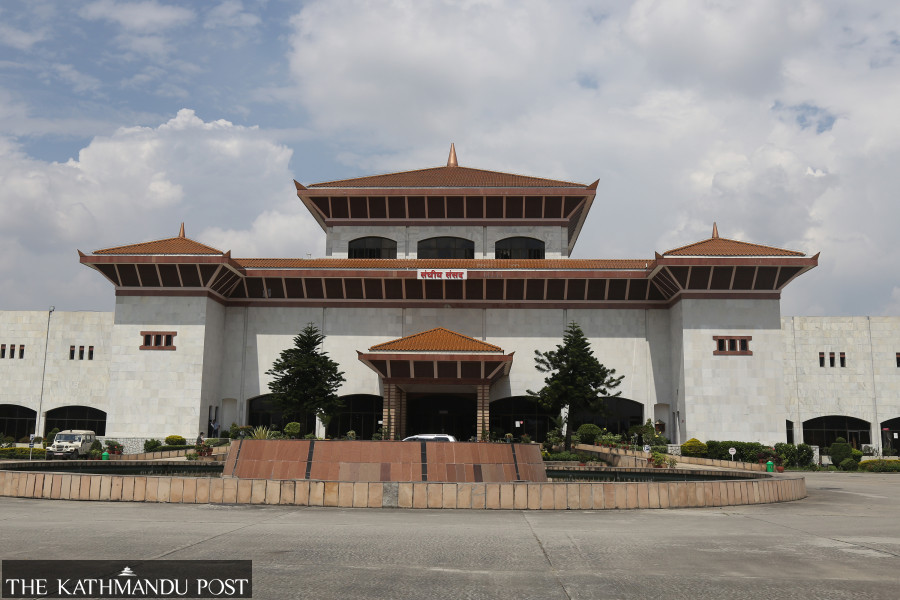National
Government registers bill to ease path to amnesty in crimes
Human rights activists say withdrawing cases related to heinous crimes will promote impunity.
Post Report
After a failed attempt to amend the National Criminal Procedure Code through an ordinance to grant amnesty even in heinous crimes, the government has registered a bill in the House of Representatives with similar provisions.
A bill to amend some Nepal Acts has a provision which says cases sub judice in any court against anyone from a party or a group which conducted violent protests in the past, but is carrying out its activities peacefully now, based on the constitution and the law, can be withdrawn. Through the bill, the government has added a sub-section to section 116 of the code, which ultimately aims at withdrawing the cases from all tiers of the courts—Supreme, High and District—against the political leaders.
If it gets endorsed by the federal parliament and receives the presidential seal, they can withdraw the cases against Resham Chaudhary, a former lawmaker convicted of masterminding the 2015 Tikapur killings, and cases against the leaders and cadres of the ruling CPN (Maoist Centre), Madhesh-based parties and the CK Raut-led Janamat Party.
The erstwhile Sher Bahadur Deuba government, in December last year, had issued an ordinance to amend the code to clear the way for the government to grant amnesty in sub-judice cases.
The move met with severe criticisms from different quarters. Not just party leaders, including those from the Sher Bahadur Deuba-led Nepali Congress, the National Human Rights Commission, too, criticised the government’s move. The constitutional human rights watchdog even sought a description about it from the Prime Minister’s Office. Though the Deuba administration didn’t budge, the code remained unchanged following the refusal of the then President Bidya Devi Bhandari to authenticate the ordinance.
Though the constitution says the President performs his/her job as prescribed in it, Bhandari refused to authenticate the ordinance. Tikaram Pokharel, spokesperson for the commission, said the commission’s position on the matter remains unchanged.
“Withdrawing cases related to heinous crimes cannot be justified,” Pokharel told the Post. “The government must refrain from making such laws.”
Successive governments have tried to make such amendments for a long time. Deuba, during his stint as prime minister in 2016, and prime minister Pushpa Kamal Dahal in 2017 had tried to amend the criminal code, but both desisted after strong reservations from their attorney generals.
Human rights activists say withdrawing cases related to heinous crimes will promote impunity. “Nepal already has a bad name for promoting impunity. The amendment to the Criminal Procedure Code will further dent its image,” Bed Bhattarai, a former secretary at the commission, told the Post. “This will also decrease the morale of the police and the investigating officers.”




 18.12°C Kathmandu
18.12°C Kathmandu













